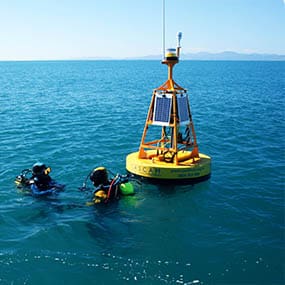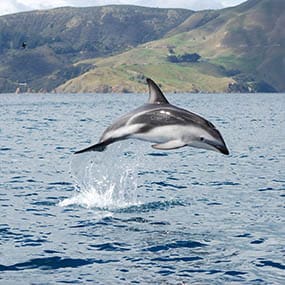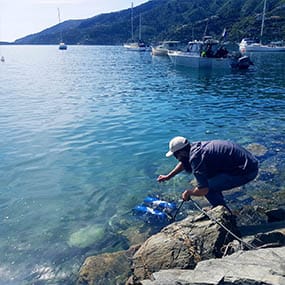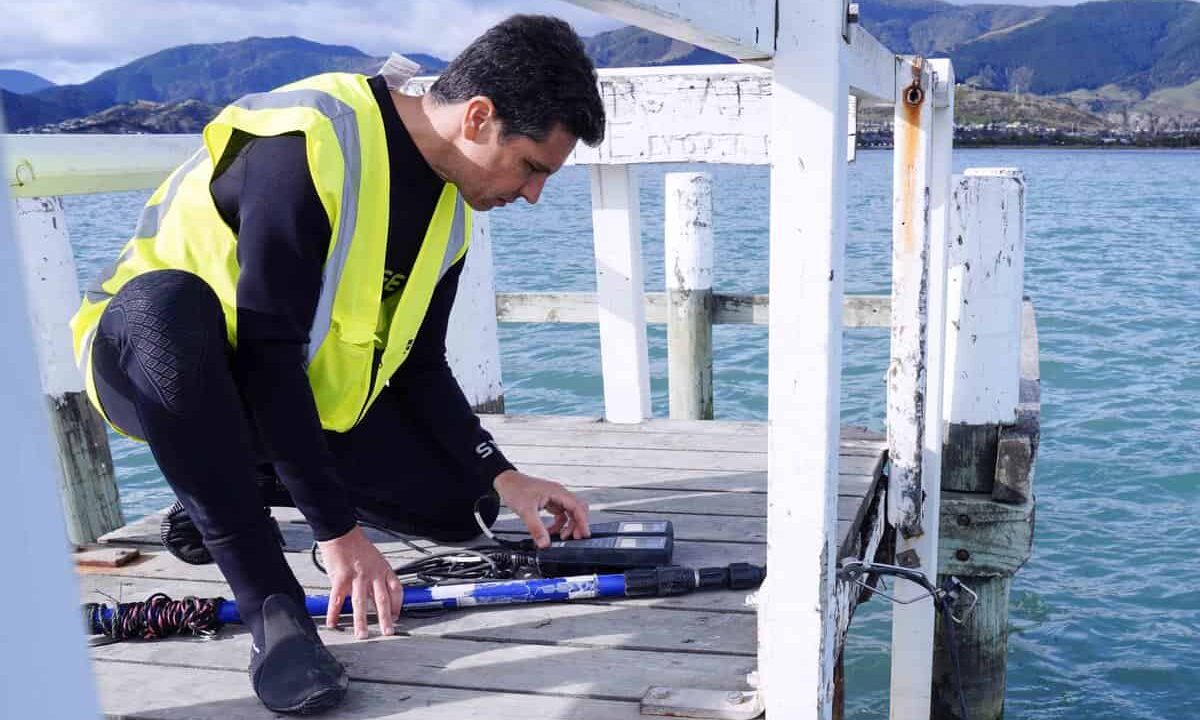Ocean Monitoring & Effects Assessments
We take a collaborative approach to ocean health monitoring and assessment.

Ocean Monitoring & Effects Assessments
We take a collaborative approach to ocean health monitoring and assessment.
Cawthron Institute’s applied marine research underpins our ability to provide robust, client-focused approaches to monitoring and assessment. Our areas of expertise include aquaculture monitoring and impact assessments, marine mammal research, monitoring the impacts of port activities, coastal developments and outfalls, and monitoring coastal water quality.
Aquaculture
We are New Zealand’s largest aquaculture monitoring and impact assessment team with over 30 years of experience. We develop practical and novel approaches to monitoring the environment, such as eDNA techniques to assess seabed conditions beneath farm sites, and the use of ‘data buoys’ to allow marine farmers to monitor conditions at their site from the comfort of their office. Our scientists work closely with industry, iwi groups, local and central government and other end-users to enable robust decisions around marine farm effects.

Marine Mammals
Cawthron’s marine mammal researchers are New Zealand’s go-to advisers for assessing and monitoring potential effects of human activities on our diverse megafauna. Our team is well connected with researchers from a range of local and international scientific and academic institutions. We regularly collaborate with these partners to ensure we can provide a full range of services to our clients. Our team is currently establishing an ocean-network of acoustic monitoring arrays so that we have the best available species distribution and migratory pathway data to inform our assessments.

Disturbance and discharges in coastal and offshore environments
With diverse backgrounds in ecology, taxonomy, chemistry and modelling, Cawthron researchers have the expertise to assess and monitor effects associated with port, harbour and marina activities, wastewater and stormwater outfalls, and a wide range of coastal and offshore developments. We have a strong track record in reef and soft-sediment biodiversity surveys and monitoring design, using a range of diver, ROV, vessel and instrumentation-based approaches.

Water Quality
Our water quality scientists have the expertise to undertake catchment-to-coast assessments of water pollution, using synoptic surveys, moored sensors, and remote sensing. This includes applying molecular tools to identify the sources and fate of contaminants and their effects on human health, as well as the modelling of discharge activities and their ecological effects on coastal environments.
